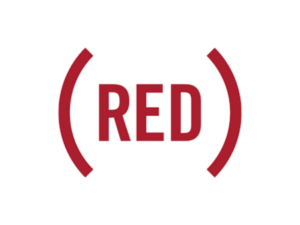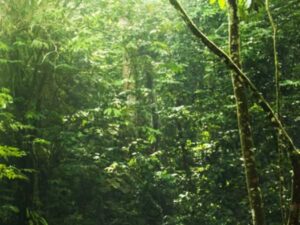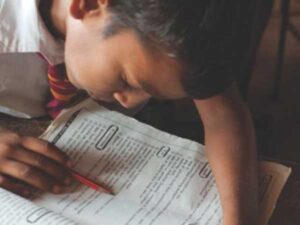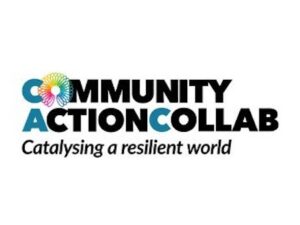The Center for Global Health Science and Security at Georgetown University is a multi-disciplinary team that develops evidence for action, providing decision makers with the tools they need for sustainable capacity building to prevent, detect and respond to public health emergencies.
Rebecca Katz of Center for Global Health Science and Security spoke with Ambika Samarthya-Howard on December 15, 2023. Click here to read the full conversation with insights highlighted.
Ambika Samarthya-Howard: Can you introduce yourself and share a little about your organization?
Rebecca Katz: My name is Rebecca Katz, and I’m a professor at Georgetown. I teach in the SFS [School of Foreign Service] and the medical center, and I run the Center for Global Health Science and Security. We ran a team at GW [George Washington University] for 10 years, then moved to Georgetown about seven years ago. We’ve been doing pandemic preparedness for 20 years by ourselves with nobody listening, which meant that the last few years were a little exciting. As a warning, we’re all just trying to figure out how we recover and people are recovering in different ways, and trying to remember what normal life is supposed to look like.
We’ve gone up and down in size over the years, and we’re a soft money research center that currently has seven or eight faculty, about 15 full-time staff, some postdocs, and some doctoral students. At one point during the height of the pandemic, we had 108 undergraduate and graduate students working with us. We’re now trying to size to something a little more sane. Within that, we’ve got about five different labs. I run one in addition to running the center. My lab focuses on diplomacy, law, governance, and financing in the health security space. We have one on climate and health, one on viral discovery. We’ve got groups that do a lot of one-health work and implementation science with partners, mostly in North and Central Africa. We have one cultural anthropologist who does a lot of community engagement for outbreak response. And I’ve got a data lab of senior software engineers that screw up all the pay scales for everybody else.
We work on a broad spectrum of things. We have been doing a range of work related to the nomenclature changes. Pandemic preparedness and response is what we call it now, or global health security, or public health preparedness and emergency management. We’ve been engaged in a variety of these activities for about 20 years, and we have been curating data in this space for over a decade to try to create an evidence base for decision-making in health security and outbreak response.
Ambika Samarthya-Howard: What is your approach exactly? Is it all academic and research?
Rebecca Katz: There are a lot of different approaches, depending on the audience and what we’re doing, from developing curriculum to training the next generation to be able to do this work. I deliberately left a School of Public Health in order to teach at the School of Foreign Service, and it was challenging. I brought my entire team and 10 research grants for a very specific purpose. We’ve spent a lot of time thinking about how we craft the field, and what the major issues are in the field. We are somewhat uniquely positioned in that a lot of academics will say, “Our work influences policy because we wrote a paper and it went somewhere, and maybe somebody read it.” [Translating that work to policy is] actually what we do.
We pursue direct access. When we have a finding, I’ll brief it at the White House, I’ll brief it at the State Department, I’ll call senior leadership at WHO [World Health Organization]. That’s our niche. We go directly to the decision makers. For years, we worked with mayors around the world and the Global Parliament of Mayors, the IO world, the U.S. decision-making bodies. We have partners around the world, but U.S.-based is our focus.
Ambika Samarthya-Howard: How are you able to call WHO? Can you give me an example of a finding and how your work made an impact?
Rebecca Katz: I’ve been doing this a long time, and I would like to believe that we’re respected scholars. Also at one point, we were a really small community of scholars. We all know each other. I run an international scientific conference to try to create and cultivate a community of practice around the world. Our first international scientific conference on global health security was in June of 2019 in Sydney. We had a thousand people from around the world, from the head of the Global Fund in Africa, to the CDC [Center for Disease Control], to scholars. We had a hundred travel bursaries for LMIC [low- and middle-income countries] scholars. A lot of what I do is connecting those dots. I think in part it’s been a slow build of an academic reputation over 20 years.
In terms of impact, we are building a pretty cool new tool to capture all of the policies in the world that are impacting emerging infectious diseases. We can [use it to] ask and answer some of the questions we’ve never been able to provide a true evidence base for. One of the things that we are coding right now this week in AMP [Analysis and Mapping of Policies] is jurisdictional authority for quarantine. If there’s an outbreak in Kigali, there is nobody who can say if it is the mayor of Kigali or the president of Rwanda who’s going to make the call on whether to quarantine or not. What’s the text of the regulation that allows them to do that? Do they then also have to provide supportive care? Nobody’s ever captured that for the entire world, so we are. It requires a lot of humans in the loop because it can’t be automated.
I went to Berlin and briefed the team there, which is the WHO pandemic hub. They’re interested in bringing contextual frameworks to the epidemiology data. So I get to say, “Here it is. Tell me what you need, and we’ll code it.” We work with them on that. I also had breakfast with the new chief of staff for the new White House pandemic office. We’re waiting for them to get their lawyer in place, then we’ll set up a full briefing so they can walk through the data.
When we have tools and we have data, that’s how we are getting it in front of people and making sure folks use it. The tracking tool that Skoll helped fund – nobody else had these things. We would get pings from people at USAID [United States Agency for International Development] and or HHS [Department of Health and Human Service] saying, “Hey, we found this.” Or the World Bank would say, “Hey, we need this data, and we found it here.” The World Bank also used our costing tools to go into countries and build business cases with the countries to figure out what they needed to build their public health infrastructure. We know they use our tools not because we track it, but because we make everything we do publicly available, and we make all of our back-end spreadsheets publicly available.
We know [how to respond] when people call us and say, “Hey, I’m having trouble on line 72.” Or, “This doesn’t make sense to me. What did you think about this?”
We had scraped data from IATI [International Aid Transparency Initiative], an international aid database, and coded something, and somebody was playing with it and pulled it up and IATI had messed up Tango and Togo. When somebody plays with our data and finds something that doesn’t make sense, we dig into it and then we ping IATI and let them know, “You guys screwed up.” Over a decade, we have basically become the data that everybody uses. So when the Gates Foundation pays McKinsey a bazillion dollars to go do all their work, the first call that McKinsey makes is to us to get their data.
Ambika Samarthya-Howard: The next question I was going to ask you was about measuring success, but I feel like you’ve answered that. Is there anything you’d like to add?
Rebecca Katz: I spend a lot of time thinking about metrics. When we say what is success, I have about eight different definitions. One of the things that we track is the role of militaries in outbreak response. We’re trying to figure out which countries have it embedded in their constitution, and what authorities are codified in different ways. At the end of that, the point is to be able to ask: Is there something that leads to better outcomes?
Better outcomes are everything from lower morbidity and mortality to better trust in government to nobody being killed in civil unrest. So when you say the matrix of success, there are a lot of different ways to measure that. We measure with just our data, and one of the things we keep track of is how many other entities are publishing using our data. I think we had fifty-six citations in the last six months. That to me is a metric of success because it means that overall, we are building a stronger evidence base using a lot of different disciplines and a lot of different scholars.
Ambika Samarthya-Howard: Is there anything you can teach us, a lesson or insight you’ve gained from something that hasn’t worked?
Rebecca Katz: There’s so much that doesn’t work, and I guess the question is on what end? You know what doesn’t work? This isn’t a financially sustainable model. Skoll kept us on life support for a couple of years, and we’re about to mothball the site because I don’t have money for it. I can’t pay for the server space, but that’s because I made the call not to monetize. There are a lot of other groups that sit on data like this, and they monetize it. I don’t believe in that philosophically on the public health side, but it just means that, oh well, it was a good run and now I’m going to have to shut it down.
Ambika Samarthya-Howard: Aside from funding, are there other challenges that you’ve faced?
Rebecca Katz: We’ve had a lot of folks ask us, “Why can’t you just automate?” Google AI uses our data. And we’ve had donors who’ve essentially said, “I don’t know why you need all these people working on this. Can’t you just set up some great algorithm and scrape it and be done?” We actually had that system at one point during the pandemic. Amazon spent a year working with us pro bono to see if we could [do this through algorithms], and at the end of the day, we couldn’t. It required humans. Maybe someday the machines will get smarter, and we’ll be able to get there. But that’s been a frustration. Another frustration is with our tracking tool. Our other stuff is very different, but the tracking tool feels only about 85% correct because the data doesn’t come directly from the governments themselves. We do it, and then if the governments are playing with it and they see something that looks a little wonky, they let us know.
The field has also changed. The algorithms that we put in place to capture funding for public health infrastructure preparedness in 2018 were implemented in a very different environment than [the environment that existed during] the pandemic, and there are some methodological challenges. If you are the government of Canada, and you gave a million dollars to cholera response in Haiti, or Ebola response in the GRC, that money gets coded as response money. But as part of that response, I might be buying a bed net, a thing that’s going to be used once and it’s done. I also might be going in and training a whole bunch of nurses on infection prevention and control. It’s not like those nurses then forget everything after the outbreak is over. But we don’t have a good way of capturing that gray space between what are we doing that’s part of an active response, and what part of that response morphs into more capacity building. We’ve struggled a lot with trying to figure out the right way to capture that and rebuild the environment around it.
Ambika Samarthya-Howard: What you’re doing is systems-level change, in my opinion. I was curious about the specific actors involved, and what they need to do to advance systems-level change.
Rebecca Katz: I could start with the finance stuff. One thing we’ve been doing since about 2011, which is parallel to this tracking tool, is figuring out the cost of public health infrastructure. We built tools and models that can fully cost your nation’s public health infrastructure in about an hour, rough order of magnitude. The World Bank uses these tools, as well as the WHO, government of Nigeria, and numerous other countries. Everybody uses it, but again, we offered it for free. What we’ve been able to do from that is look at it and say, okay, this is what it’s going to cost every nation. Here’s where they are, in rough order magnitude, in terms of capacity, today. Here’s the delta of what they need to be able to get to.
About two years ago, we published that it required about $124 billion over five years to build national-level capacity. That doesn’t include global goods like research and development for medical countermeasures, or supply chain manufacturing capacity. [That number reflects] if I combined what Ethiopia needs to do with what Suriname needs to do [with what the rest of the nations need to do], in total. Then we redid our numbers, which we haven’t published, but we have made the spreadsheets available, and it’s about $300 billion now. So we’ve got a $300 billion problem. In the interim, the G20 did a high-level independent panel to make recommendations to set up a new fund that resulted in the pandemic fund, which is now based at the World Bank and jointly, and I’m a little conflicted. I’m one of 20 people who sit on the advisory. I’m the expert who has to read all the proposals that come in.
We’ve got this fund, and there’s a secretariat who decides what we are going to fund and how much. This is the kind of scholarship and evidence base where we can turn around and say okay, so you’ve got this $300 billion problem. You gave out $337 million in the first round, which is like nothing. How do we take the evidence of what it costs, and what we need? I walked into those meetings to review those 135 country proposals–me, not the secretariat–and I took the data from our tools and put it in front of everybody. So if Sierra Leone was asking for $20 million to increase laboratory capacity, you would have in front of you all the data on how much they’ve received to date.
We found in some of our analyses, which I didn’t publish for a long time, that there was an inverse relationship between the amount of money that international donors were giving to certain capacities, like laboratory and surveillance, and sustained capacity building over time. Anecdotally, we know that if a country is not prioritizing something, it’s not going to be sustained. But I need to be able to show it empirically. I now have data and analyses that I can take that back to the pandemic fund discussions and say, that’s great that a whole bunch of people sitting in Washington are deciding what the priorities are that we’re going to give money out on, but maybe we should be listening more to what the countries themselves want if we actually want something to be sustained.
Ambika Samarthya-Howard: That’s the financial aspect. Do you want to talk about the other aspects of what’s needed for systems-level change in this work?
Rebecca Katz: There’s quarantine. I spent 10 years trying to get funding to do research related to decision-making around quarantine and isolation, and nobody was interested in it. In around 2013, I finally got a teeny bit of money. Initially, NIH [National Institute of Health] was like, “Well, this is a good project, but it’s not using innovative methods enough.” I wanted to use tried and true methods to look at this problem, but I said fine. I rewrote a proposal that was a latent class analysis that nobody cared about, which by the way didn’t work. So I officially proved that latent class analysis does not work to answer the question, but we did a lot of work and we got a lot of great results.
Then that project was over and the follow-up wasn’t really research, it was more implementation, and nobody was willing to fund that. At the beginning of the pandemic, I was on NPR, and somebody found my papers from this project and they asked, “Now what?” There was nothing. That being said, the stuff we’re doing right now is helping capture the denominator data for quarantine, isolation, and jurisdictional authority. Then, we can analyze where that authority best sits.
We have a whole other project where we’ve made the disease outbreak news machine readable. It’s the one major repository of all outbreaks. We’ve mapped it, and we’ve combined a whole bunch of different data sources and streams and some analytical stuff. When I advise a decision maker on day one of an outbreak, they’re reluctant to take action. It’s expensive. There are civil liberties issues and human rights issues, yet everything we know says that the faster you act, the more lives you save. We’re trying to figure out what that balance is, and how to arm a decision maker, from a mayor to a president to an international actor, with enough evidence that they can make those really early decisions with confidence, or with more confidence than they would have in the past.
One of the things that we’ve done by combining a whole bunch of different stuff, [is developed evidence that shows] that regardless of what direction an outbreak goes, and what we know on day one versus what we might know on day 10, you would have to do about 60% of the activities no matter what happens. If I can calculate the ROI [return on investment] on that, or the opportunity cost, I can then show up to the governor of California and say, “Listen, you can hold off on taking these 30 actions, but here are the ones that there are no reason to wait on, and here’s what it’s going to cost you if you don’t. Here’s the evidence that you can take to your legislative branch to argue for your budget.” It’s knowing what those decision makers need to be able to take action when they’re making decisions under uncertainty.
Ambika Samarthya-Howard: Where do you see your work going in the next five years? It seems like a lot of what you’re doing now, and what you’re planning to do, is trying to push for longer-term legislative change. I’d love to hear more about it.
Rebecca Katz: I think the work we’re doing in AMP is pretty foundational. We’re basically creating the denominator and then we can try to ask and answer the right questions. It’s the same with forest degradation and air pollution and how they mix with climate. It’s also part of helping to educate the spectrum of decision-making from the international treaty to regional to national level implementation to what it looks like at the local scale, and how all those things have to tie together. Very few people really see that as clearly as I do. In many conversations, there’s a disconnect in understanding. I feel like [creating that foundational understanding] is a huge part of the work.
We’re also building out our training in health diplomacy. I’m going to launch a new certificate in it because there aren’t enough people in the world who have the combination of skills to negotiate a treaty on pandemics, or on sharing genetic sequence data. I was talking to part of the negotiating team yesterday, and they’re dead. We are one of the most robustly resourced countries in the world to do this, so we need to create that skill set and create that workforce. So that’s another major area of focus. I am also really keen on trying to figure out the governance issues related to the most vulnerable people in the world.
Somebody working for MSF [Médecins Sans Frontières] in a refugee camp or an IDP [internally displaced person] community doesn’t report their data to the country, which means that it doesn’t get reported into the international system, which means that those are the last environments where we’re going to have early warning of an outbreak. Yet some could argue that those communities contain some of the most vulnerable people in the world to outbreaks. We need to document it before we can start figuring out what the policy effects are.
Ambika Samarthya-Howard: You’ve already shared so many insights, but are there any other explicit insights you’d like to share? Maybe about how you did the work? What advice would you give to someone who wants to replicate what you did?
Rebecca Katz: Ideally, to do everything in a more collegial manner than the current situation invites. I’m a soccer mom, so I used to think about my field in the same way as I think about soccer. For the longest time, we were playing like four-year-olds where everybody chased the same ball. This is such a huge space that we’ll do better if everybody plays the field and passes. To take it just one step too far, I’m literally the mom on the side with the orange slices cheering for everybody, but that’s not how we play. We play like the four-year-olds, and that might just be the nature of academia. Everyone is so ambitious. I wish everybody was in it for the greater good, but they’re not. I don’t have nearly as much tolerance for that as I probably should.
Ambika Samarthya-Howard: Are you speaking specifically about people being too competitive and therefore not collaborating deeply enough?
Rebecca Katz: Yes. There’s very little collaboration. There’s also this [striving to do something better than someone else instead of doing what’s needed.] For example, someone might look at one of the tools that I built and say, “Oh, I’m going to do the exact same thing.”
And I’ll say, “Wait! There are 50 other things that we need to do. I’m sure you can probably do what I did better. Great. Someday call me. We’ll figure out where you can do it better or why or what we would need to do that.” Instead, it’s people trying to steal ideas before they look at the rest of the field and notice, “We’ve got all that green space over there. We haven’t touched it yet.” That’s what I would prefer, but again, that’s not the reality. It’s like the U.S. government. Everybody wants to claim that they’re in charge of a thing until you actually have to do the work, and then nobody wants to do the work.
Ambika Samarthya-Howard: I’m hoping that a lot of the work with this website, and some of the systems change work that Skoll is fostering, will form more connective tissue so that people don’t feel like they have to replicate things.
Rebecca Katz: I’ve got to say, my biggest issues are people within my own institution who ignored us forever, and then our work became a hot topic, and they decided, “I’m going to do that.” I would love to say “You could call me. We would love some help on the following.” I had another group at my institution try to recreate our COVID policy library, and they actually told me, “We’re going to copy you. We’re not going to be able to do it as well, but we’ll market it.” I wanted to know: Why?
Ambika Samarthya-Howard: I think there’s a resource scarcity mindset, too, where people feel like they need to do certain things to get certain things because there’s only so much to go around. It’s a real mindset shift that needs to happen globally.
Rebecca Katz: In global health, that’s the biggest issue. The pie’s not getting any bigger. It gets smaller every day, and if we can’t get PEPFAR [President’s Emergency Plan for AIDS Relief] reauthorized, I don’t know what we’re going to do, but the only way to get better is to figure out how to better integrate horizontal and vertical programs, and not create 18 different specimen referral systems. If you’re going to train a community health worker, train the same community health worker to do malaria and hypertension. They’re going door to door anyway, but nobody’s doing that.
Ambika Samarthya-Howard: I think that will ultimately come from a deeper societal shift of how we view and value community and money, how we see each other as a global community, and how we stop feeling like we’re competing against each other as we move away from a resource scarcity mindset.
Rebecca Katz: In the pandemic space, you also have the very heavy cloud of the geopolitical challenges that are going on right now, plus the fact that so many countries feel like they got screwed in the global system during the pandemic. They’re not even nodding politely anymore. They’re saying, “No, no, no. I’m not going to play with you because you didn’t come through when I needed you to come through.”
Ambika Samarthya-Howard: I feel it’s similar with climate. Right now, everyone’s antagonistic because the politics have become so entrenched with the solutions. It’s really painful to watch and observe how little we are able to move forward on things that affect us all.
Rebecca Katz: Which is why we need awesome diplomats doing our multilateral negotiations.
Ambika Samarthya-Howard: I’m really glad you’re doing that certificate. That sounds really appropriate.
Rebecca Katz: I’m excited. It’s taken me a while to get it going because of Georgetown politics, but as of last week, it looks like the Institute for the Study of Diplomacy wants to run it, and they cut through everything. So I think we’re going to be able to get it up and running at least for SFS students, and then hopefully within the next couple of years get it as an add-on. I would love to have a med student do it, or a law student.
I also have a book coming out on April 15th. One of my takeaways from the pandemic was we can increase public literacy. So I took work that we’ve been doing for years on supporting public health emergency operation centers around the world and helping them understand all the steps in an outbreak and turned it into an illustrated reference book.
Ambika Samarthya-Howard: That’s so interesting. I appreciate you and thank you for your time today.
Click here to read the full conversation with insights highlighted.
Ambika Samarthya-Howard (she/her) is the Solution Journalism Network’s Chief Innovation Officer: She leads on innovation and technology, leverages communication platforms for the network strategy and creates cool content. She has an MFA from Columbia’s Film School and has been creating, teaching and writing at the intersection of storytelling and social good for two decades. She has produced content for Current TV, UNICEF, Havas, Praekelt.org, UNICEF, UNFPA, Save the Children, FCDO, Global Integrity and Prism.
* This interview has been edited and condensed.
Learn about other organizations that provide social innovations.







